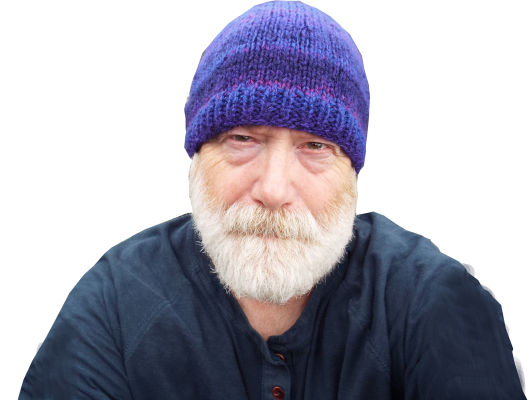search
date/time
 | Cumbria Times A Voice of the Free Press |

Jonathan Humble
Features Writer
1:32 PM 30th December 2020
nature
One Called Paul (Part Two)

The Sparrowhawk:
Did you know that falconers refer to male sparrowhawks as ‘muskets’ and that in medieval times they were considered to be the hunting bird for a priest? Shakespeare used ‘eyas-musket’ as a term for a young lad or sparrowhawk.
Adrenaline Junkie
An eye-flash hint of speed
followed by car alarm blackbirds
and I know you’ve tested the air again;
surfed a low profile wave
in a high stake hawk ride,
navigating marginal branch gaps
and scaring little brown jobs witless,
while beaks from tree and bush
alert the neighbourhood watch.
Standing still, I stay and wait,
late rewarded with an appearance,
stick legs in fluffed up pantaloons,
short stay juvenile power perching on my gate,
a striped waist-coated bully,
Shakespeare’s eyas-musket, young eyes wide,
wondering why this foray ended in failure;
no satisfying explosion of feathers
at the end of a breakneck career
through the field by this hedgerow,
planted fifteen years ago in hope of encounters
with feathered adrenaline junkies,
looking for thrills and spills
and old dozy pigeons.

Did you know the nightingale is a bird that through its song has inspired the creative talents of poets and musicians? Keats called them an ‘immortal bird’ although they were once thought to impale themselves on thorns while singing, suffering for their art, as it were.
The Red Kite:
Did you know that the word kite is from the Old English cyta and in Chaucer’s Knight’s Tale: ‘Thercam a kyte, whilþt they were so wrothe That bar awey the boon bitwix hem bothe.’ Ph*k noes wat that meins …
The Skylark:
Did you know that ‘The Lark Ascending’ is a poem by George Meredith? A paean to the song and flight of the skylark written in 1881, the poem inspired Ralph Vaughan Williams to compose a musical work of the same name, which is now more widely known than the poem.
The Rook:
Did you know that before we all became massively intelligent, in days of yore, folk believed rooks gathering and squabbling in the canopies of trees were debating matters of the day, hence the collective noun a parliament of rooks?
This Work Is Done
This is an old feeling,
standing by this evening’s field,
dark rags hanging, strung on wire,
silent and unmoving under a parched sky.
Which lore or gods apply?
Would it help to free your feathers,
wake thought and memory in cold skulls,
wear a black cape in silhouetted brotherhood?
Should I take up your work?
Am I now a familiar to a Norse god,
with spying eyes in new watching brief,
and become his ears in Midgard?
Should I kneel before the Once and Future King?
Does a messiah hang in this unkindness?
Have I witnessed the end of hope
for an ancient island people?
Should I fly the field, proclaim the news,
take up the role of fate carrier,
become the Mór-Ríoghain’s latest messenger
and find a song that sings of coming conflict?
Or is the battle already lost, our colours down,
and what’s required this late spring evening is
to take this knapsack, flask and tools
and tell the farmer this work is done?
Secrets of Men
Perched on a milestone,
Spy considered offers from fylgjur,
haunting woods like fox wraiths.
Night worn as a cloak, tired bones
aching under breeze ruffled feathers,
his conspiracy betrayed by brother silhouettes
circling in tempered moonlight.
Revealed by flecks of white in beads of jet,
he watched ghost clouds drift like lost leaves,
disturbing stars floating on the edge of eternity,
and looked to his own flight home.
But dawn found him sightless and stiff;
lights extinguished, in shadow of stone,
some fifteen years from his birth
in the boughs of Yggdrasil,
where he’d first told Odin
the secrets of men.

Did you know that serial wife murderer and all round pillock Henry VIII had it in for bullfinches as well? Their ‘criminal attacks’ on fruit trees resulted in an Act of Parliament declaring that one penny would be paid for every bird killed.
The Kestrel:
Did you know that in the medieval Boke of Seynt Albans, kestrels or windhovers were considered suitable birds for poor men, hence the title of Barry Hines’ excellent story A Kestrel For A Knave, adapted into the film Kes by Ken Loach; brilliant film, wonderful hawk.
The Swift:
Did you know that in the nest, young swifts exercise by doing push-ups on their wing tips and if food becomes short for any reason, they are able to reduce their metabolic rate and survive off body fat in state of torpor? How clever!
Coming Home
I wonder if, like me, the winter skies at Cunswick,
swathed in low cloud, above old scars of crag
and frozen garlands of brown bracken,
anticipate the welcome return of African visitors;
if underfoot, limestone bones ache for warmth,
dark fissured slabs buried beneath grass paths,
quietly longing for early May’s trick of light,
tired bodies aloft after months of migration.
Do these hazels shiver with the birch and gorse,
recalling dog days, the fall and rise of darts feeding,
the speed of mameluke sabres cutting air curves
with absurd precision over woods in full leaf?
And below, flowing through Kendal’s grey canvas,
does the Kent reflect colours of summer expectation,
thoughts of days spent bird watching with you,
on the long return alone to a Cumbrian terrace?
All poems and images by Jonathan Humble